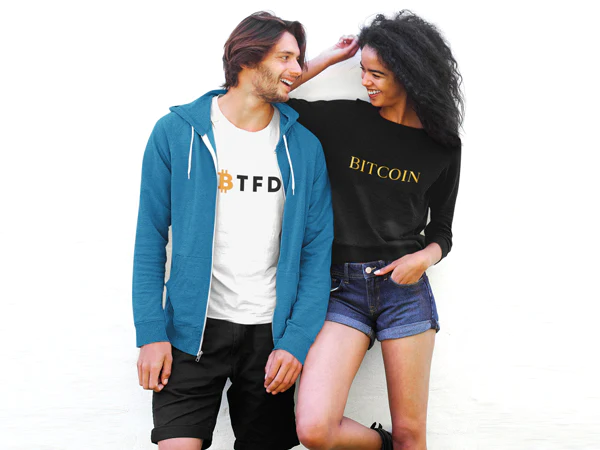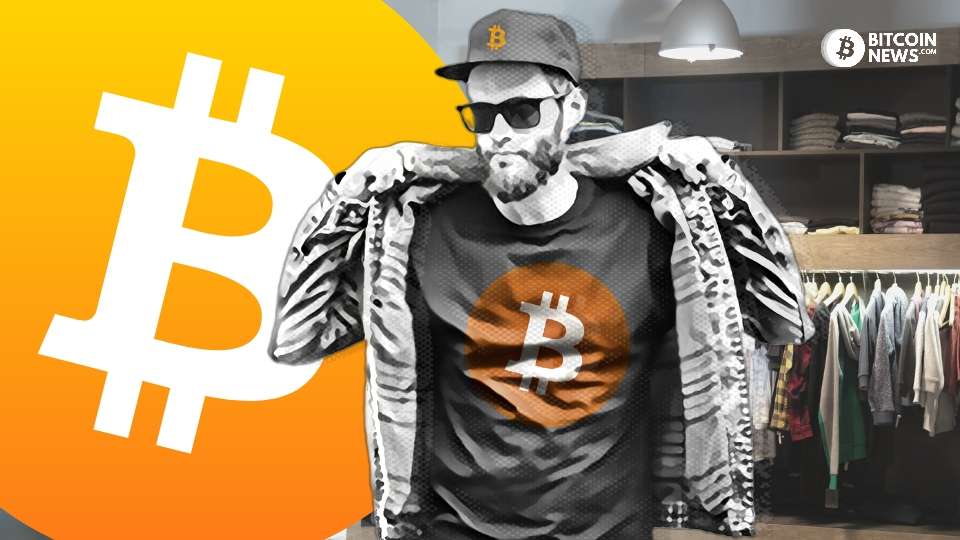As Bitcoin becomes better understood and more widely adopted, savvy entrepreneurs are moving in to take advantage of the space. The men behind The Bitcoin Clothing Company are doing more than just that.
What Is The Bitcoin Clothing Company?
The BCC is an online merchandise store selling Bitcoin-related apparel and accessories.
Founded in 2021 the business is registered in Las Vegas, Nevada, where the two founders Nicolas Canella and Demetrios Alex met.
But it’s more than just a clothes shop.
The company is dedicated to being a benefit to the Bitcoin community. As such, they work closely with other projects looking to utilize the power of Bitcoin to do good in the world.
Featuring their own original designs, with a focus on creative style and high-quality material, the young startup is on a mission to deliver Bitcoiners what they need.
Co-founder and CEO Nicolas Cannella explains that he learned about Bitcoin from his tutor when studying for his Master’s in Finance.
He realized then, “This is humanity’s first chance to get it right.”
With a passion for making the world a better place, Nicolas realized Bitcoin was the perfect tool for the job.
“If you fix the money, you fix the world. The money right now is broken.”
With that in mind, The Bitcoin Clothing Company has a goal to educate more people on the benefits of Bitcoin, as well as provide financial support to others looking to use the network to make the world a better place.

What Is Their Mission?
With a share of the profits going towards altruistic initiatives, they’re not just looking to make a quick buck.
On their website, they set out their mission statement as being “To provide high-quality apparel and accessories that truly capture the character of the Bitcoin community in a way that directly supports the development of the Bitcoin Infrastructure.”
Talk is cheap, but can these entrepreneurs put their money where their mouth is?
The website states that 20% of profits are donated to The Human Rights Foundation’s Bitcoin Development Fund, launched in 2020 to support the Bitcoin network’s use as a tool for human rights activists.
Nicolas tells me it’s actually 21%; I almost wonder if it’s a subtle nod to the 21 million bitcoin cap.
What stands out to me when speaking to Nicolas is his sincerity in his belief in this mission.
He’s always had an entrepreneurial spirit, dating back to his youth, but more pertinently, he’s always had altruistic tendencies, having spent two summers volunteering in Ghana, for example.
There are two things that Nicolas keeps coming back to during our conversation:
The first – tell the truth. “What’s the strategy? Tell the truth.”
The second – make money in the right way. “When you’re on your deathbed, it won’t matter if you have one or two billion. What will matter is what gave your life meaning.”
The Bitcoin Clothing Company is a vehicle to do exactly those two things. It’s genuine; it’s meaningful; it’s the Bitcoin ethos manifested.

How Does It Capture The Bitcoin Ethos?
What is the Bitcoin ethos?
Bitcoin cannot be manipulated, it necessitates honesty in the network.
Unlike our fiat system, where governments and central banks can control monetary policy as they please, the Bitcoin network is decentralized and trustless.
Nicolas is passionate about reflecting this.
“Bitcoin is sound money; it fixes the inventive structure around money.”
Because it cannot be manipulated, it removes the element of corruption from the free market.
Nicolas is clear in his belief that Bitcoin enables the best form of capitalism. That seems beautifully encapsulated in the merchandise company.
They’re not Wall Street bankers or a Silicon Valley tech startup selling the next useless app. They’re an honest cloth brand with a mission.
It’s an innovative twist on the merchandising paradigm. When you buy a Star Wars mug, you know Disney gets that money. When you buy a Taylor Swift shirt, you can be sure she gets a cut.
But with Bitcoin, we all own it. It’s decentralized; it’s global; it’s free. No one has a monopoly.
The BCC, with its partnerships with Bitcoin initiatives such as Bitcoin Ekasi and The Bitcoin Tour, is an example of “Bitcoin capitalism” at its best.
Everyone who gets involved in Bitcoin is passionate about the network, and they all support each other generously to further the values of the collective.
Free-market capitalism does not have to be devoid of generosity, and these collaborations demonstrate this to great effect.
By taking advantage of its decentralized nature and lack of copyright, the startup can fulfill its mission of making money the right way and using it to do some good in the world.
Bitcoin is about the people. All of us. Not a corporation, not a government, not an alphabet agency.
The Bitcoin Clothing Company is the Bitcoin ethos in practice.
I can’t help but feel inspired when Nicolas shares his passion for what Bitcoin can achieve, imbuing me with his own sense of wanderlust when he tells me, “Imagine what humanity can do.”



